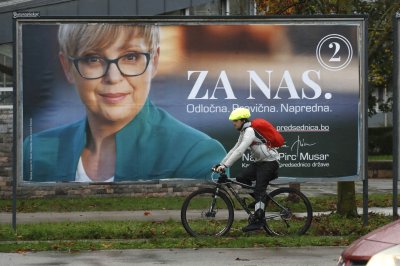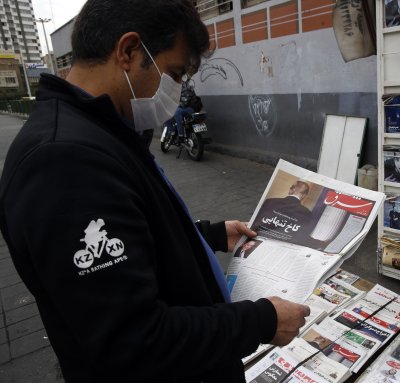Topic: Janez Jansa
Janez Janša (born 17 September 1958) is a Slovenian politician and president of the Slovenian Democratic Party. Between November 2004 and November 2008, he served as the Prime Minister of Slovenia.
Born as Ivan Janša to a Roman Catholic working-class family of Grosuplje, he was called Janez (a version of the same name, known as John in English) since childhood. His father was a former member of the Slovenian Home Guard from Upper Carniola who had escaped Communist retaliation due to his young age. He graduated from the University of Ljubljana with a degree in defence studies in 1982, and became a trainee in the Defence Secretariate of the Socialist Republic of Slovenia. In his younger years, he was a member of the League of Communists and one of the leaders of its youth wing. He became president of the Committee for Basic People's Defence and Social Self-Protection of the Alliance of Socialist Youth of Slovenia (ZSMS).
In 1983, Janša wrote the first of his dissident articles about the nature of the Yugoslav People's Army (JNA). In the late 1980s, as Slovenia was introducing democratic reforms and gradually lifting restrictions on the freedom of speech, Janša wrote several articles criticizing the Yugoslav People's Army in the independent magazine Mladina. As a result, his re-election as president of the Committee was blocked in 1984, and in 1985 his passport was withdrawn. He said that he made over 250 job applications in the following year without success, and was unable to secure publication of any articles. In this period he earned his living writing computer programs and acting as a mountaineering guide. Liberalisation in the succeeding years allowed him to get work as secretary of the Journal for the Criticism of Science (1986) and later to begin publishing again in Mladina. On 30 May 1988 he was arrested together with three other Mladina journalists and a staff sergeant of the Yugoslav Army, Ivan Borštner. They were tried in a military court on charges of exposing military secrets, and given prison sentences. The trial was conducted in camera, with no legal representation for the accused, and in Serbo-Croat (the official language in the Yugoslav army) rather than in Slovene. Janša was sentenced to 18 months imprisonment, initially in the maximum security prison at Dob, but following a public outcry, he was transferred to the open prison of Ig. The case became known as the JBTZ-trial and triggered mass protests against the regime, which marked the beginning of the process of democratization, known as the Slovenian Spring. The Committee for the Defence of the Rights of Janez Janša was formed soon after his arrest, which became the largest grassroots civil society organization in Slovenia with over 100,000 members.
It uses material from the Wikipedia article "Janez Jansa."







